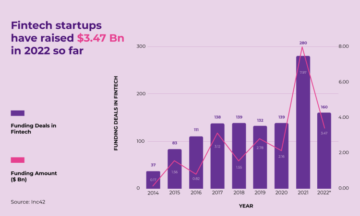The rapid development of disruptive technologies in recent years has sparked an explosion in start-up activity. Thanks to the favourable investment climate we witnessed in the past few years, there is a trend of rapidly developing businesses across all industries,
which are expected to continue to grow to meet consumer needs and to realise investor expectations.
During these high growth stages, businesses tend to prioritise revenue-generating activities, such as product development, marketing and sales. This skewed focus results in limited effort being put in the support functions. However, to successfully grow
a business, support functions – in particular the finance department – need to scale alongside the rest of the business.
In practice, we’re seeing the importance of the finance department is repeatedly overlooked which leads to significant issues with scaling the business down the road. The finance department should be considered a key enabler in a business’ growth, as it’s
responsible for managing liquidity, generating information to support decision making, procuring and paying vendors, tracking inflows of funds, planning, analysing business trends, etc. Finance sits at the centre of every business and can provide a real value-add,
if set up efficiently.
We’re introducing a series of blogs that will deep dive into the finance department of a fast-growing scale-up. Looking at challenges, the ingredients for success and how to define and work towards a more efficient target state. In this first blog of the
series, we will be introducing a few of the challenges finance departments face and what a good finance ecosystem looks like.
The critical role of finance
The finance department within each organisation essentially bills and collects money, provides financial planning/forecasting and allocates funds to the right areas of the business. In short, it helps to determine what to spend, when to spend and where to
spend it. Furthermore, this department plays a vital role in providing management with access to the latest data on company performance so they can make informed business decisions based on accurate information. Due to finance’s breadth of responsibilities,
it is a critical function for all organisations.
Key challenges facing finance departments
-
Attrition of key finance personnel due to SMEs being leveraged for finance data cleansing and inputting tasks, as opposed to value-add, interesting work
-
High costs due to inefficient use of resources and systems (e.g. due to manual processes and controls, retro-active data cleansing, inefficient usage of systems)
-
Difficulty in collating accurate data in a timely manner, which can lead to stale or inaccurate data being leveraged for decision making by senior management
-
Inaccurate financial and regulatory reporting, which can lead to significant rework and financial implications (i.e. fines)
-
Difficulty in complying with timelines for taxes, filing of accounts, etc.
-
Lacking or inaccurate data for investors
Organisations where these challenges in the finance department aren’t being actively addressed will struggle with accuracy, efficiency and with keeping costs under control. These issues will increase exponentially as the business grows. Especially as a company
is preparing for or once it has completing a funding round or an exit strategy, these challenges will weigh heavily on the finance department and they could hinder or delay the success of the strategy.
Ingredients for a successful finance department
In an ideal world, the organisation would solve these challenges by addressing the source of the challenges, with an operating model that includes:
-
A mix of in-house and outsourced professionals, which helps to balance cost, local shortages and qualifications of resources.
-
A centralised accounting or ERP system, which is linked to data sources across the business and a variety of tools which support straight-through processing and limit manual processing of data.
-
A golden source of data, stored in the cloud, with sufficient governance in place which feeds into modules for financial accounting, financial reporting, financial planning, management reporting, tax reporting, etc.
A purpose-built finance ecosystem, which implements the above aspects and addresses the challenges at their source, will enable the finance department to truly add value to the company. At the same time, it will help to curtail cost increases as the organisation
grows, due to the level of embedded efficiency and automation. The earlier that the foundations for this ecosystem are built within a company, the better.
_________________________________________
Throughout this series of blogs, we will be highlighting the importance of the finance department within a scale-up and giving you tips and tools to help you improve the performance and scalability of your finance department.
Key topics we will cover are:
- The key challenges facing finance departments of scaling businesses
- The requirements and expectations of investors for scale-ups (in particular: Venture Capitalists)
- The key structure / framework CFO’s of scaling companies need in place
- CEO’s of scaling companies’ expectations for the finance department
- Our top tips on how to position your finance department for future growth and success
Keep an eye out for the next blogs in this series, where we will continue to deep dive into each of these topics and provide guidance on how to address key challenges and how to set up your finance department up for success.
- ant financial
- blockchain
- blockchain conference fintech
- chime fintech
- coinbase
- coingenius
- crypto conference fintech
- fintech
- fintech app
- fintech innovation
- Fintextra
- OpenSea
- PayPal
- paytech
- payway
- plato
- plato ai
- Plato Data Intelligence
- PlatoData
- platogaming
- razorpay
- Revolut
- Ripple
- square fintech
- stripe
- tencent fintech
- xero
- zephyrnet













